11 Dec 2024

Tired Earth
By The Editorial Board
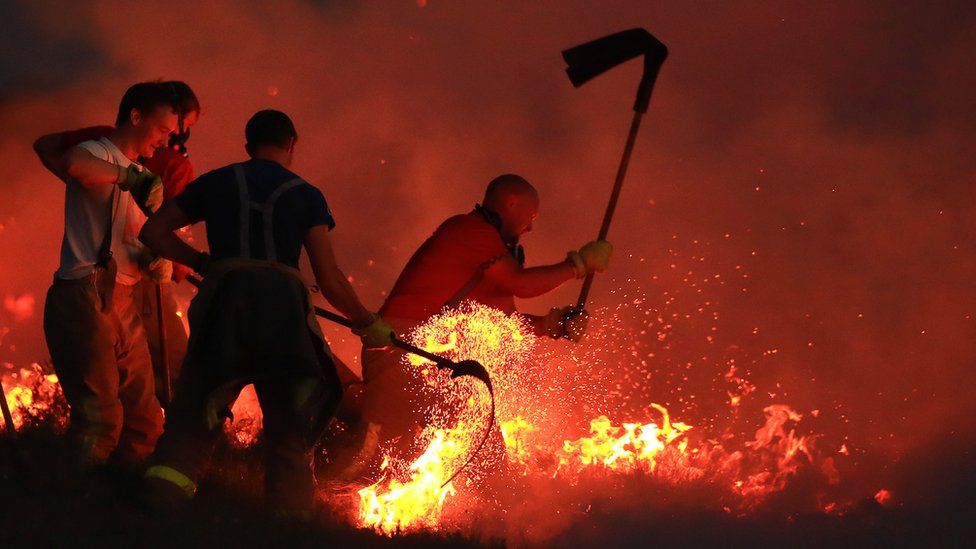
image sourceEPA
The landmark study warns of increasingly extreme heatwaves, droughts and flooding, and a key temperature limit being broken in just over a decade.
The report "is a code red for humanity", says the UN chief.
But scientists say a catastrophe can be avoided if the world acts fast.
There is hope that deep cuts in emissions of greenhouse gases could stabilise rising temperatures.
Echoing the scientists' findings, UN Secretary General António Guterres said: "If we combine forces now, we can avert climate catastrophe. But, as today's report makes clear, there is no time for delay and no room for excuses. I count on government leaders and all stakeholders to ensure COP26 is a success."
The sober assessment of our planet's future has been delivered by the UN's Intergovernmental Panel on Climate Change (IPCC), a group of scientists whose findings are endorsed by the world's governments.
Their report is the first major review of the science of climate change since 2013. Its release comes less than three months before a key climate summit in Glasgow known as COP26.
In strong, confident tones, the IPCC's document says "it is unequivocal that human influence has warmed the atmosphere, oceans and land".
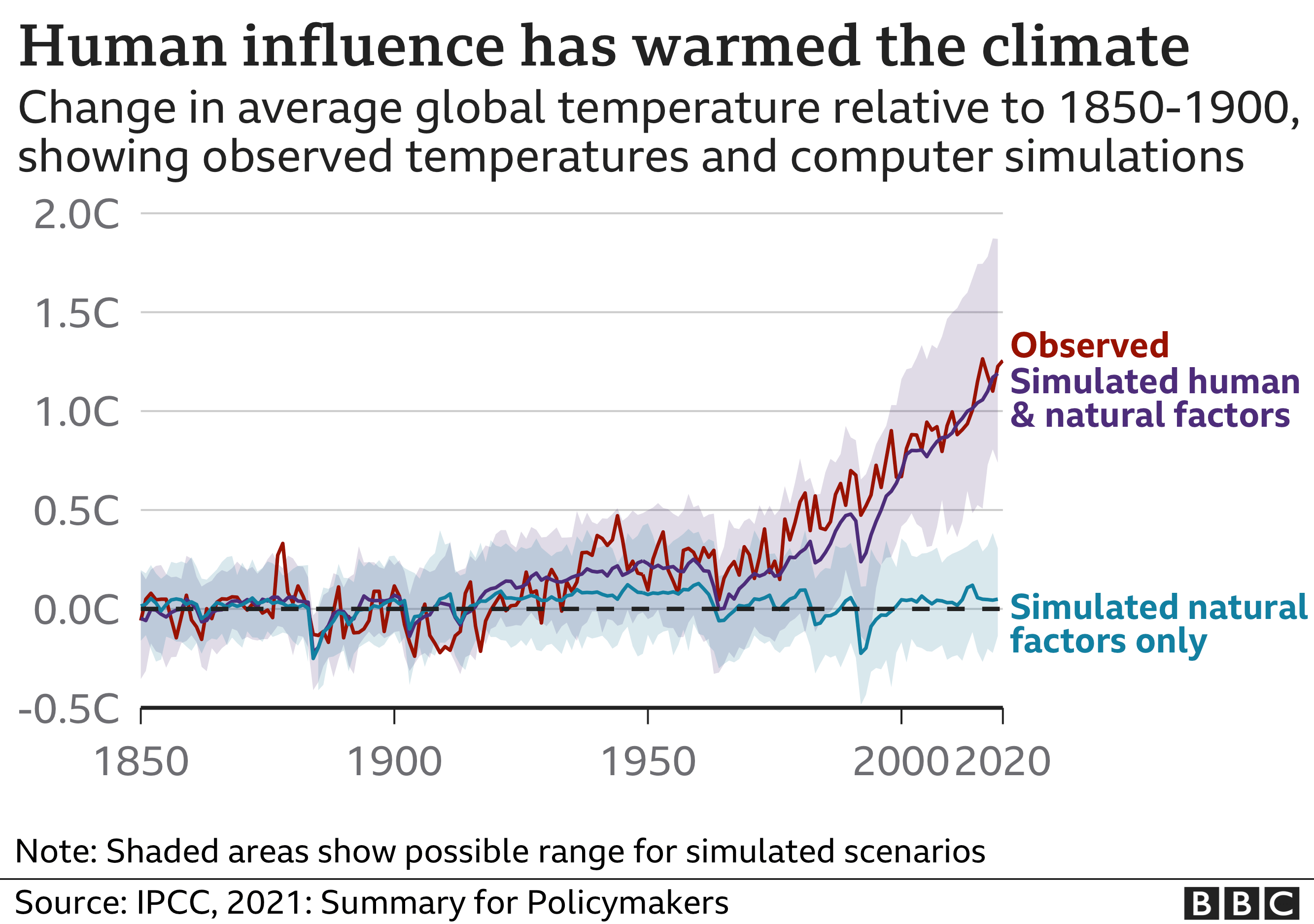
According to Prof Ed Hawkins, from the University of Reading, UK, and one of the report's authors, the scientists cannot be any clearer on this point.
"It is a statement of fact, we cannot be any more certain; it is unequivocal and indisputable that humans are warming the planet."
Petteri Taalas, Secretary-General of the World Meteorological Organization, said: "By using sports terms, one could say the atmosphere has been exposed to doping, which means we have begun observing extremes more often than before."
The authors say that since 1970, global surface temperatures have risen faster than in any other 50-year period over the past 2,000 years.
This warming is "already affecting many weather and climate extremes in every region across the globe".
Whether it's heatwaves like the ones recently experienced in Greece and western North America, or floods like those in Germany and China, "their attribution to human influence has strengthened" over the past decade.
The new report also makes clear that the warming we've experienced to date has made changes to many of our planetary support systems that are irreversible on timescales of centuries to millennia.
The oceans will continue to warm and become more acidic. Mountain and polar glaciers will continue melting for decades or centuries.
"The consequences will continue to get worse for every bit of warming," said Prof Hawkins.
"And for many of these consequences, there's no going back."
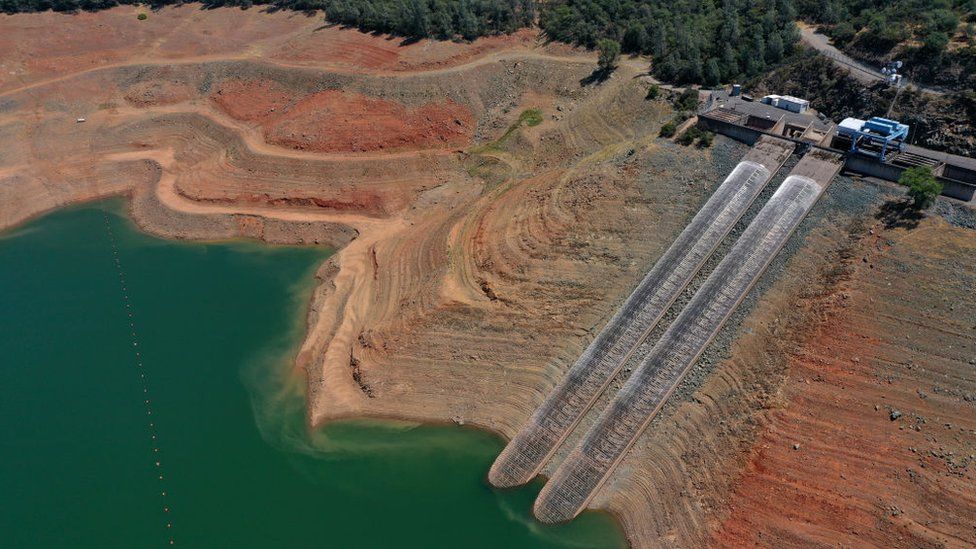
Drought in California has seen water levels in Lake Oroville drop to record lows, Source Justin Sullivan
When it comes to sea level rise, the scientists have modelled a likely range for different levels of emissions.
However, a rise of around 2m by the end of this century cannot be ruled out - and neither can a 5m rise by 2150.
Such outcomes, while unlikely, would threaten many millions more people in coastal areas with flooding by 2100.
One key aspect of the report is the expected rate of temperature rise and what it means for the safety of humanity.

Protesters urge action by politicians as the clock counts down to November's COP26 climate summit in Glasgow.
Almost every nation on Earth signed up to the goals of the Paris climate agreement in 2015.
This pact aims to keep the rise in global temperatures well below 2C this century and to pursue efforts to keep it under 1.5C.
This new report says that under all the emissions scenarios considered by the scientists, both targets will be broken this century unless huge cuts in carbon take place.
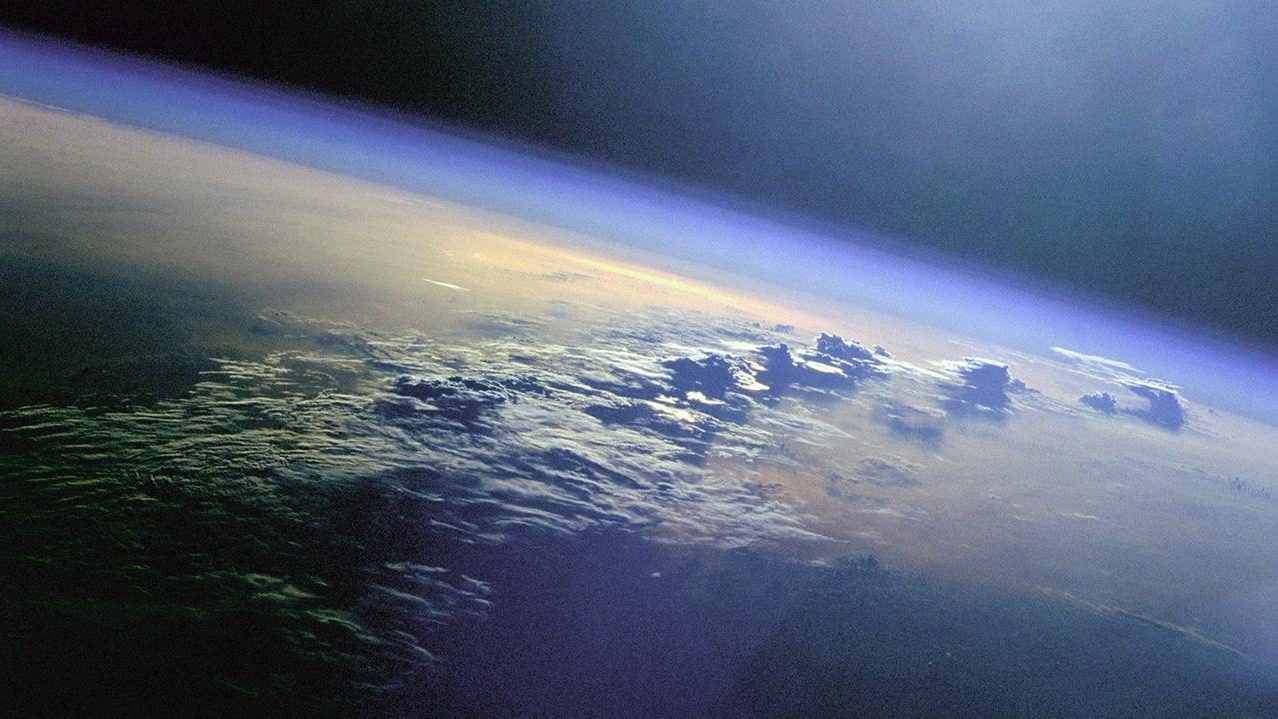
NASA
Source: IPCC
The authors believe that 1.5C will be reached by 2040 in all scenarios. If emissions aren't slashed in the next few years, this will happen even earlier.
This was predicted in the IPCC's special report on 1.5C in 2018 and this new study now confirms it.
"We will hit one-and-a-half degrees in individual years much earlier. We already hit it in two months during the El Niño in 2016," said Prof Malte Meinshausen, an IPCC author from the University of Melbourne in Australia.
"The new report's best estimate is the middle of 2034, but the uncertainty is huge and ranges between now and never."
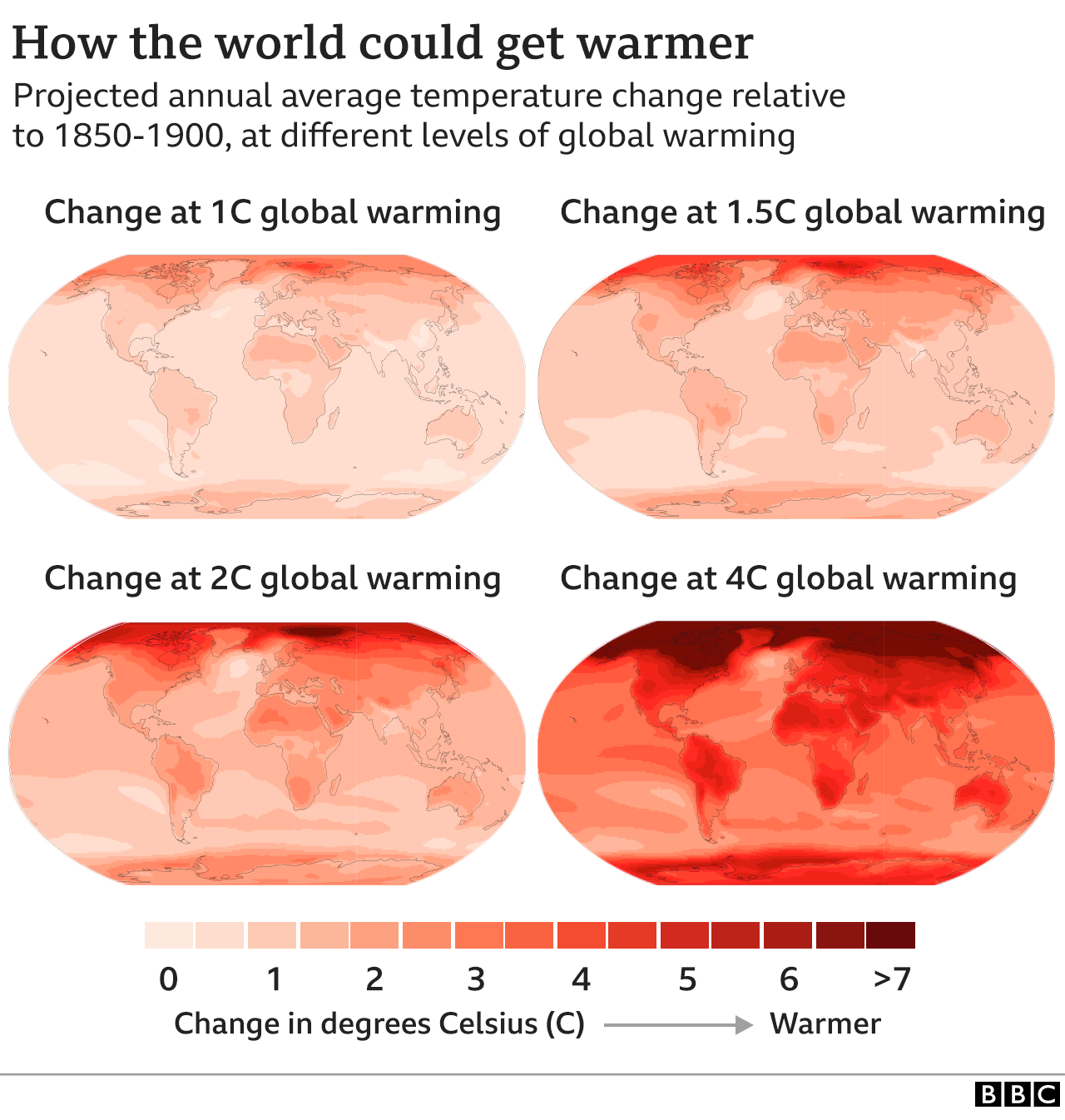
The consequences of going past 1.5C over a period of years would be unwelcome in a world that has already experienced a rapid uptick in extreme events with a temperature rise since pre-industrial times of 1.1C.
"We will see even more intense and more frequent heatwaves," said Dr Friederike Otto, from the University of Oxford, UK, and one of the IPCC report's authors.
"And we will also see an increase in heavy rainfall events on a global scale, and also increases in some types of droughts in some regions of the world."
Prof Carolina Vera, vice-chair of the working group that produced the document, said: "The report clearly shows that we are already living the consequences of climate change everywhere. But we will experience further and concurrent changes that increase with every additional beat of warming."
So what can be done?
While this report is more clear and confident about the downsides to warming, the scientists are more hopeful that if we can cut global emissions in half by 2030 and reach net zero by the middle of this century, we can halt and possibly reverse the rise in temperatures.
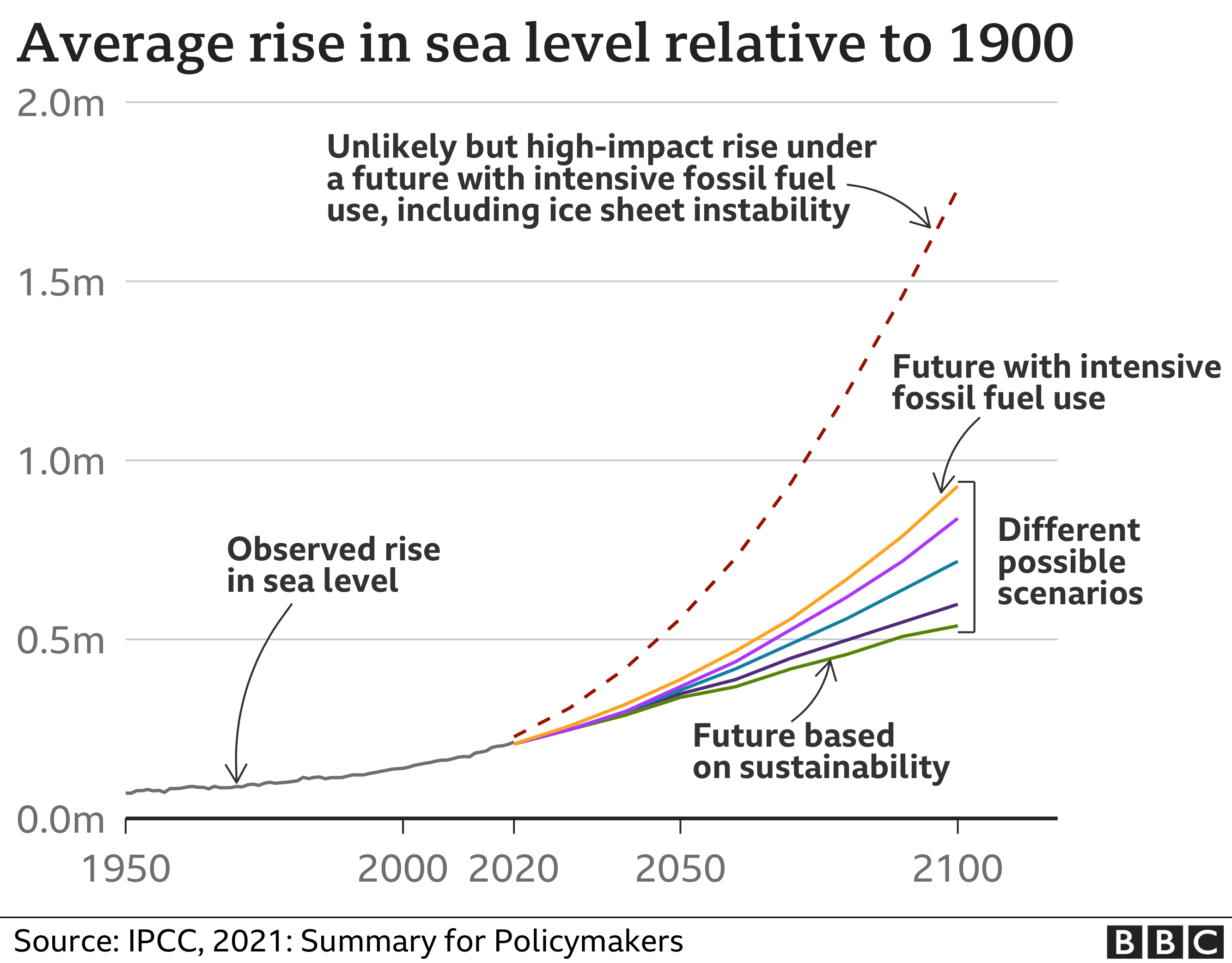
Reaching net zero involves reducing greenhouse gas emissions as much as possible using clean technology, then burying any remaining releases using carbon capture and storage, or absorbing them by planting trees.
"The thought before was that we could get increasing temperatures even after net zero," said another co-author, Prof Piers Forster from the University of Leeds, UK.
"But we now expect nature to be kind to us and if we are able to achieve net zero, we hopefully won't get any further temperature increase; and if we are able to achieve net zero greenhouse gases, we should eventually be able to reverse some of that temperature increase and get some cooling."
While the future projections of warming are clearer than ever in this report, and many impacts simply cannot be avoided, the authors caution against fatalism.
"Lowering global warming really minimises the likelihood of hitting these tipping points," said Dr Otto. "We are not doomed."
A tipping point refers to when part of the Earth's climate system undergoes an abrupt change in response to continued warming.
For political leaders, the report is another in a long line of wake-up calls, but since it comes so close to November's COP26 global climate summit, it carries extra weight.
Source : bbc.com
Comment